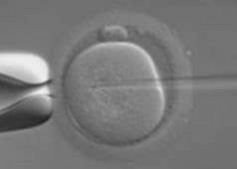Ethical, Legal and Social Issues of Cryobiology | Two of the major items that are preserved through cryobiology are gametes and embryos. These, as well as sperm and oocytes, can now be preserved at various stages in their developments. One of the major issues concerning this is that it is a form of assisted reproduction. Couples may seek this form of assisted reproduction if they want the woman to save her egg cells while she is at a young age. The couple can use the egg cells for later in life when they have established a stable household or are ready to have a family. The same may be said for men. They can have their sperm cells frozen and put away for later use if they have a problem and can no longer produce healthy sperm. The problem lies in the fact that it is assisted reproduction; many people from a religious point of view have an issue with embryo cryopreservation. In 1956, Pope Pius XII said that artificial reproduction was illegal and immoral. Today this applies to in-vitro fertilization or surrogate mothering, and embryo cryopreservation. Since there are many followers of the Catholic Church and its positions, these followers believe embryo cryopreservation is wrong. Also, there is not a 100% guarantee that freezing the egg |
Cryonics preserves human and animal bodies after modern medicine can no longer do such. Patients will choose to be preserved so that in the future they hope that they may be able to be resuscitated. Cryonics is not illegal nor it is unregulated, however there are no laws in any state in the United States that recognizes cryonics. This can cause legal issues. In the 1980s the California Department of Health Services tried to see that cryonics was illegal by arguing that human remains or bodies could not be given to a cryonics organization because of the Uniform Anatomical Act. However this didn’t work and the legality of cryonics was established in 1992.In 2004 the Arizona House of Representatives passed a bill to put cryonics and its procedures under the regulation of the estate funeral board. However, there was debate on the floor and the bill was withdrawn. Advocates and supporters of cryonics say that it is a patient’s desire and he should have the freedom to choose what they want to do because it is constitutionally protected. The courts are in agreement as well or cryonics would be illegal in some states. |
|
Ethical
Many people believe that a human being's lifespan is predestined and should not be tampered with. The ability to be able to live longer is one of the major goals of the studies in cryonics, and therefore there exists much controversy around this topic. Different interpretations of the meaning of death cause much of this controversy; because some people especially scientists believe that death is when the individual cells and organs have stopped functioning. With this definition, many people argue that cryonics is a life-lengthening process. Depending on the person's point of view, this can be a good or bad outcome. There are some people who oppose cryonics and are for the lengthening of the human time span. Since a successful method has not yet been found to resuscitate cryonics patients, these people believe successful cryonics is just not possible.
Unethical
Cryobiological techniques can cause severe damage. Any type of cryobiological procedure affects the cells and its surrounding areas, and, thus, could cause severe damage.
· In cryosurgery, damage has been reported which is almost the same amount as the successes of treatment
· Damage may also occur in the embryo or gamete cryopreservation. A very small minority of viable births
are from cryopreserved embryos, and because of its recent proliferation, the long-term implications are still unknown.
· No successful resuscitation has been performed on cryonics patients. This either shows that there is damage somewhere along the way or that resuscitation of a frozen human being is impossible.
Price
Although cryopreservation in the laboratory for cell cultures can cut the costs of many procedures, the price of most other major cryobiological procedures is very expensive and cannot be afforded by common people. For example, a cryonics company dedicated to finding a way to resuscitate frozen humans, Alcor Life Extension Foundation, charges between $50,000 and $120,000 for cryonic suspension. These high prices are another reason why some people do not support cryobiology.
Legal Issues
The custody of frozen embryos is a constantly growing issue, because if a married couple decide to cryopreserve their embryo for later and they end up getting a divorce, there is no way to decide who would get embryos because there is no law yet pertaining to this issue. Who gets legal rights to them?
Social Impact
Cryobiology is still being develop today and when
the time comes that it is perfected, normally only rich people can only
afford it. Although cryopreservation in the laboratory for cell cultures
can cut the costs of many procedures, the price of most other major
cryobiological procedures is very expensive making only the high status
people to afford it. For example, a cryonics company dedicated to
finding a way to resuscitate frozen humans, Alcor Life Extension
Foundation, charges between $50,000 and $120,000 for cryonic suspension.
We can infer that the price is really high and these high prices are
reason why some people do not support cryobiology. Here in the United
States, generally, cryobiology is only used for preserving cells and
different tissues but on the wide range it is possible that the practice
of cryobiology in using it for surgical and medical purposes, most
likely that the less fortunate people would not acquire such complicated
yet highly effective medical technique for treating different diseases
such as cancer. It is also the same for the other countries, as long as
there are less fortunate people, the effectiveness on using cryobiology
as a treatment is less.

